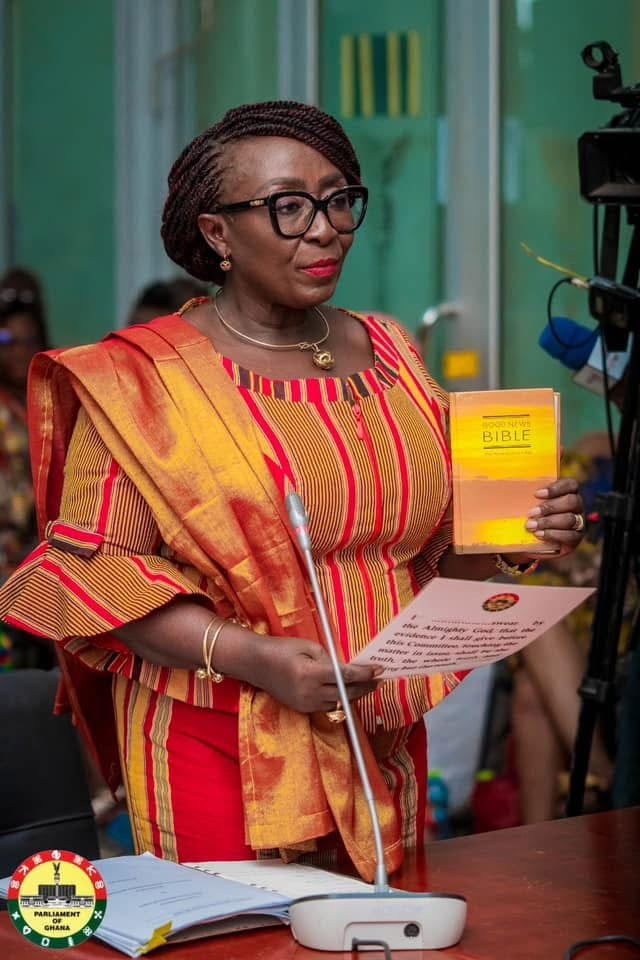Abla Dzifa Gomashie, the Minister-Designate for Tourism, Culture, and Creative Arts, presented her vision for the revitalization and growth of Ghana’s tourism sector during her vetting before Parliament’s Appointments Committee. She underscored the crucial role of strategic investments in developing and enhancing existing tourist attractions, particularly highlighting Mole National Park in the Savannah Region as a key area deserving of focused attention. Gomashie acknowledged the park’s long-standing popularity as a frequently visited destination and emphasized the need for increased investment to elevate its appeal and further capitalize on its potential. This commitment to Mole National Park signals a recognition of its significance within Ghana’s tourism landscape and the potential for greater economic returns through targeted improvements.
Central to Gomashie’s strategy is the concept of empowering local communities to drive tourism development. She championed the Black Star Experience model, an initiative designed to empower district, municipal, and metropolitan assemblies to spearhead arts, tourism, and cultural projects. This decentralized approach aims to foster local ownership and create a ripple effect of economic benefits within communities. By equipping local administrative bodies with the resources and autonomy to manage and promote their unique cultural and artistic assets, the model seeks to diversify tourism offerings and stimulate economic growth at the grassroots level.
Gomashie’s vision extends beyond physical infrastructure development, encompassing a broader focus on promoting Ghana’s rich cultural heritage. She recognizes the interconnectedness of tourism, culture, and creative arts, emphasizing their potential to serve as key drivers of economic growth. This holistic approach acknowledges that tourism experiences are enriched by cultural immersion and the showcasing of artistic expression. By integrating these elements, Gomashie aims to create a more compelling narrative for Ghana as a tourist destination, attracting a wider range of visitors and generating sustained economic benefits.
One of the key challenges facing the tourism sector is the effective utilization of resources to maximize impact. Gomashie’s commitment to pushing for increased investment in tourism reflects an understanding of the need for significant financial resources to implement her vision. She believes that greater investment in the sector will attract further resources, creating a positive feedback loop. This injection of capital is crucial not only for infrastructure development but also for marketing initiatives, training programs, and the preservation of cultural heritage, all of which contribute to a thriving and sustainable tourism industry.
Furthermore, Gomashie’s emphasis on local empowerment through the Black Star Experience model represents a strategic shift towards community-based tourism development. This approach recognizes that local communities possess invaluable knowledge and resources that can be leveraged to create authentic and meaningful tourism experiences. By empowering local authorities to manage and promote their own attractions, the model aims to foster a sense of ownership and pride within communities, ensuring that tourism benefits are distributed more equitably and contribute to sustainable local development.
In conclusion, Abla Dzifa Gomashie’s vision for Ghana’s tourism sector is characterized by a commitment to strategic investment, a focus on local empowerment, and a recognition of the interconnectedness of tourism, culture, and creative arts. Her prioritization of Mole National Park’s development signifies a recognition of its potential as a flagship destination, while the Black Star Experience model reflects a forward-thinking approach to community-based tourism development. By advocating for increased investment and empowering local communities, Gomashie aims to unlock the full potential of Ghana’s tourism sector and establish it as a key driver of economic growth and cultural preservation. Her commitment to these principles positions her to make a significant contribution to the transformation of Ghana’s tourism landscape and the enhancement of its cultural identity on the global stage. The success of her initiatives will rely on effective implementation, stakeholder collaboration, and a sustained focus on promoting Ghana’s unique cultural and natural heritage.














